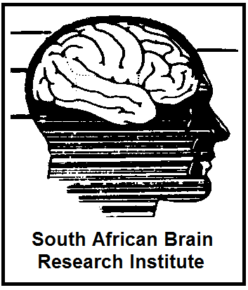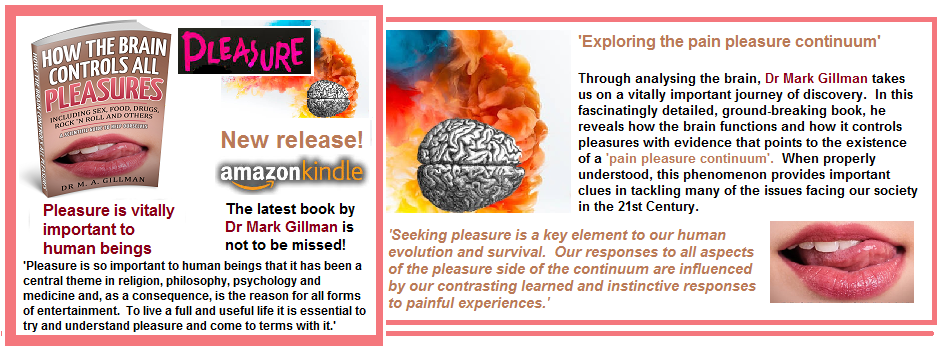Click here to get your copy of the latest book by Dr Mark Gillman!
https://www.amazon.com/dp/B07B21J7JW
Drug addiction and alcoholism – The coach that carries the ‘hurt’ element is seldom far behind the pleasure wagon
effects of drugs on the brain
Drug addiction and the effects of drugs on the brain seem to be a strange melding of pleasure and pain. As Byron Adinoff so crisply puts it ‘Rewards are pleasurable. Addictions hurt.’ Nonetheless, few drug addicts begin taking mind-altering drugs without initially seeking some reward, usually associated with pleasure.
Of course, once someone becomes an addict, what happens later on is another matter entirely. In the current chapter, because the theme of the book is pleasure, I am going to concentrate on the underlying mechanisms, pathways and neurotransmitters associated with the pleasure aspect of using mind-altering drugs when dealing with the effects of drugs on the brain.
Despite the fact that there are other transmitters and pathways involved in the addiction process, I may not mention these so as to try, as far as possible, to be concise; while avoiding oversimplification. In other words, my aim is not to impart an exhaustive account of all aspects of the addictive process and its development.
The coach that carries the ‘hurt’ element is seldom far behind the pleasure wagon
Nevertheless, there is one caveat that needs to be borne in mind when dealing with drug addiction and the effects of drugs on the brain, that is to never lose sight of the fact that along with the rush of what may seem like a roller-coaster ride per se, the coach that carries the ‘hurt’ element is seldom far behind the pleasure wagon.
Although dopamine has been implicated in ‘wanting’, the actual pleasure or ‘liking’ is produced mainly by the endorphin system. Long before proposing a common endorphin pathway for all drug addictions, our human research had led us to recognise the possibility that the pain producing endorphin system could be involved in producing the painful hangover. An unpleasant hangover often occurs after the abrupt discontinuation of an addictive drug by an addict. Our prediction was later confirmed by other workers in animal experiments.
Co-existence of drug and/or alcohol addiction with other forms of mental illness
My late colleague, Fred Lichtigfeld and I had gained an impression over more than 35 years of working with substance and alcohol abusers that many of these addicts also had other mental disorders. Our clinical intuition and that of my other colleagues who had the same feeling, is underpinned by a great deal of scientific evidence showing an association between drug addiction and schizophrenia or mood disorders. The often close association between substance abuse with mental disorders is marked by other overlaps which include:12
- Common genetic influences which may render people susceptible to both conditions, following the appearance of one or the other;
- Similar environmental stimuli such as stress and trauma ushering an appearance of either illness. Trauma can be physical and/or mental, particularly where there is an underlying genetic influence;
- Similar brain areas seem to be involved in mental illness and addiction, especially those related to pleasure and stress processing;
- Both diseases seem to be developmental, often occurring in childhood and adolescence. There is also some evidence that the early use of addictive substances can precipitate addiction and that the appearance of a mental illness may cause drug addiction;
- Mental illnesses, like addiction, carry stigmas, which often delay families and individuals seeking treatment.
Moral and societal attitudes versus science – some lessons from history
Mind altering drugs have been used for millennia and may be as old as mankind itself. In fact, for so long, that some Palaeolithic paintings may have been painted by artists who were in a trance-like state. In certain cases, these trances may have been induced by mind-altering, possibly hallucinogenic drugs.
Furthermore, wine and beer are mentioned in Egyptian texts and on numerous occasions in the Bible. And we know that opium and cannabis have been used for centuries. The people of ancient times knew that the use of mind-altering substances, whether taken for their medicinal or recreational actions, could have untoward effects. Excessive alcohol intake can lead to violence, antisocial and irresponsible behaviour and even death. Hallucinogens, like LSD have been known to produce subjective feelings of such power that users have jumped to their death in the mistaken belief that they could fly and even defy gravity. Opium has been employed for centuries for its pain-relieving and pleasure generating actions, but nevertheless, can lead to death if taken in excessive doses.

